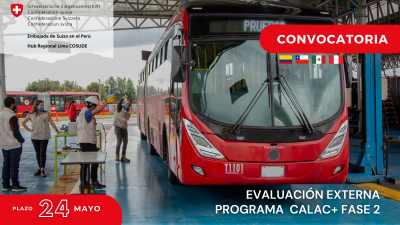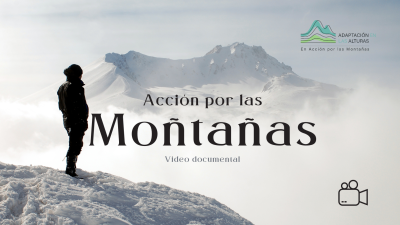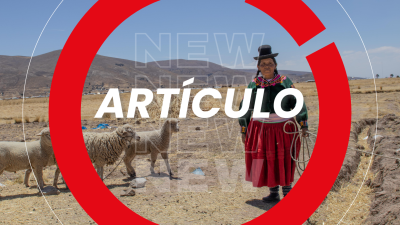The event was organized last May 12 in the framework of the high-level side meetings prior to the International Donors Conference in Solidarity with Venezuelan Refugees and Migrants, to be held next June 17, 2021 and organized by Canada in collaboration with the Regional Interagency Coordination Platform (R4V).
Context
The benefits of access to water, sanitation and hygiene (SDG 6) cannot be underestimated. Meeting the physical need for a safe drinking water source is the most immediate benefit of gaining access. But safe drinking water is only the tip of the iceberg, as it can only be fully achieved when there is also access to adequate sanitation and good hygiene practices. Access to WASH is interconnected and is also essential to achieving other Sustainable Development Goals (SDGs), including the elimination of poverty and hunger, reduction of inequalities, and good health and well-being. Access to WASH services also has profound and broader socioeconomic impacts, particularly for women and girls. Almost all of the other goals depend in some way on water, sanitation and hygiene. [1].

In Latin America and the Caribbean (LAC), diarrheal disease is the third leading cause of mortality among children under five years of age. Despite significant progress towards SDG 6, 82 million people still lack access to basic sanitation services, with 15 million still practicing open defecation and 20 million lacking access to safe drinking water. The lack of WASH services has a disproportionate impact on young children, girls and women. Children, especially those living in poverty, are highly vulnerable to disasters and bear a disproportionate [2].
The number of refugees and migrants leaving Venezuela is increasing daily, making it the second largest external displacement crisis in the world, with more than 5.6 million people, including children, fleeing the country since 2015. Since then, as a regional WASH sector, SDC has made progress in reducing the vulnerabilities of migrant families and host communities, however, refugee and migrant populations continue to face limited access to water, sanitation and hygiene (WASH) services. According to the third round of the GIFMM JNA (cited in the RMPR 2021) in Colombia, 33 per cent of Venezuelan households do not have access to improved water sources, 36 per cent do not have access to safe drinking water when needed, and 41 per cent are at risk of not washing their hands properly. These needs are widely prevalent among both transient populations and those intending to stay, where 67 per cent and 53 per cent of them respectively do not have access to WASH services.
As a result of the complex economic and political outlook of the COVID pandemic, the increased reliance on emergency humanitarian assistance in the WASH area is reflected in the increased needs outlined in the RMRP 2021 with 4.10 million people in need, 1.10 million people targeted, and the financial requirement of $42.4 million.
To integrate the humanitarian-development nexus, the WASH Sector Plan focuses on mainstreaming the WASH needs of the Venezuelan population into local plans, policies and budgets, while supporting service providers to deliver at least basic levels of WASH services that meet SDG 6, using humanitarian investments towards the Sustainable Development Goals [3].
High Level Panel
The overall objective of the high-level WASH event was to close the humanitarian and development gap by leveraging investments for local WASH service providers and mobilizing host government policy makers to integrate the WASH needs of the Venezuelan people into their national plans, policies and budgets; thus contributing to SDG 6, ensuring that no one is left behind.
Specific objectives:
- Create a better understanding of the critical WASH needs affecting Venezuelan refugees and migrants affected by the outflow crisis.
- Identify synergies and opportunities for timely action to accelerate WASH policy change and implementation.
- Leverage investments to empower local WASH service providers to deliver predictable and quality WASH services.
What is needed to ensure the human right to water, sanitation and hygiene for Venezuelan refugees and migrants in LAC?
The second block of the event sought to highlight the multi-year perspectives of governments and service providers on lessons learned and opportunities and the importance of investing in water, sanitation and hygiene services.
Martin Jaggi, SDC’s head of the Andean region, shared the stage with Sergio Campos, head of the Water and Sanitation Division of the Inter-American Development Bank; Ralph Hansen, Canadian Ambassador to Peru and Bolivia; and David Michaud, LAC Practice Manager, Water Global Practice, World Bank.

Mr. Jaggi highlighted the SDC’s active role as a humanitarian and development donor and in humanitarian aid. He described the support that Switzerland provided in November 2020 to Guatemala after the Eta and Iota hurricanes, where the short-term strategy (saving lives) was to alleviate suffering through an SDC project with its network of local partners for delivering food, WASH, hygiene and biosecurity kits.
In the medium to long term, local partners supported by SDC specialists, consolidated these initiatives with further activities to restore the livelihoods of affected communities by developing income-generating activities (cash transfers) and combining multi-sector activities (WASH, food security, protection).
“SDC’s experience in “localising aid” has shown that mobilising financial resources and targeting them with this approach has enabled SDC to develop humanitarian response models with high quality standards,” he emphasised.
With regard to how bilateral donors can change and increase funding to local partners and service providers, Jaggi said: “First, before talking about how bilateral donors can increase funding, the Grand Bargain commitments must be consolidated, at least in the following four main lines of action: i) cash transfers, ii) multi-year humanitarian funding, iii) simplified reporting, and iv) strengthening the commitment of humanitarian and development donors to localise aid.“
“It is important to build the capacity of local implementers and service providers to be in a position to handle, manage and execute larger amounts of funding for projects and programmes with a Nexus approach,” he said.
Regarding Venezuelan migration and how different sectors can guarantee access to basic water, sanitation and hygiene services as usual and in the context of COVID-19; Jaggi said that i) all COVID-19 WASH action should also take into account the Venezuelan migrant population. In Peru for example, sectors have worked with public canteens, and Lima has a post-earthquake water initiative; ii) there must be a joint response with adapted technology and led by the government sectors, with the support of the United Nations, NGOs or the private sector and coordinated with the community and other stakeholders; and iii) the Venezuelan population is registered and integrated into countries’ development plans.
Finally, he pointed out: “This ‘active coordination’ approach has to be sensitive to gender, diversity, conflict and the principle of “do no harm”, leaving no one behind. It is important that this collaboration uphold the principle of risk sharing among all stakeholders. This is becoming all the more important in the Latin American region due to the pandemic and socio-political tensions.”
Source: WASH LAC
[3]Inter-agency Refugee and Migrant Coordination Platform for Venezuela (2021). Regional Response Plan for Refugees and Migrants from January to December 2021. https://rmrp.r4v.info/
[2] UNICEF, LAC hp: Children living in a clean and safe environment, 2021.
[1] Sanitation and water for all: Why SDG 6 is important, 2021.













